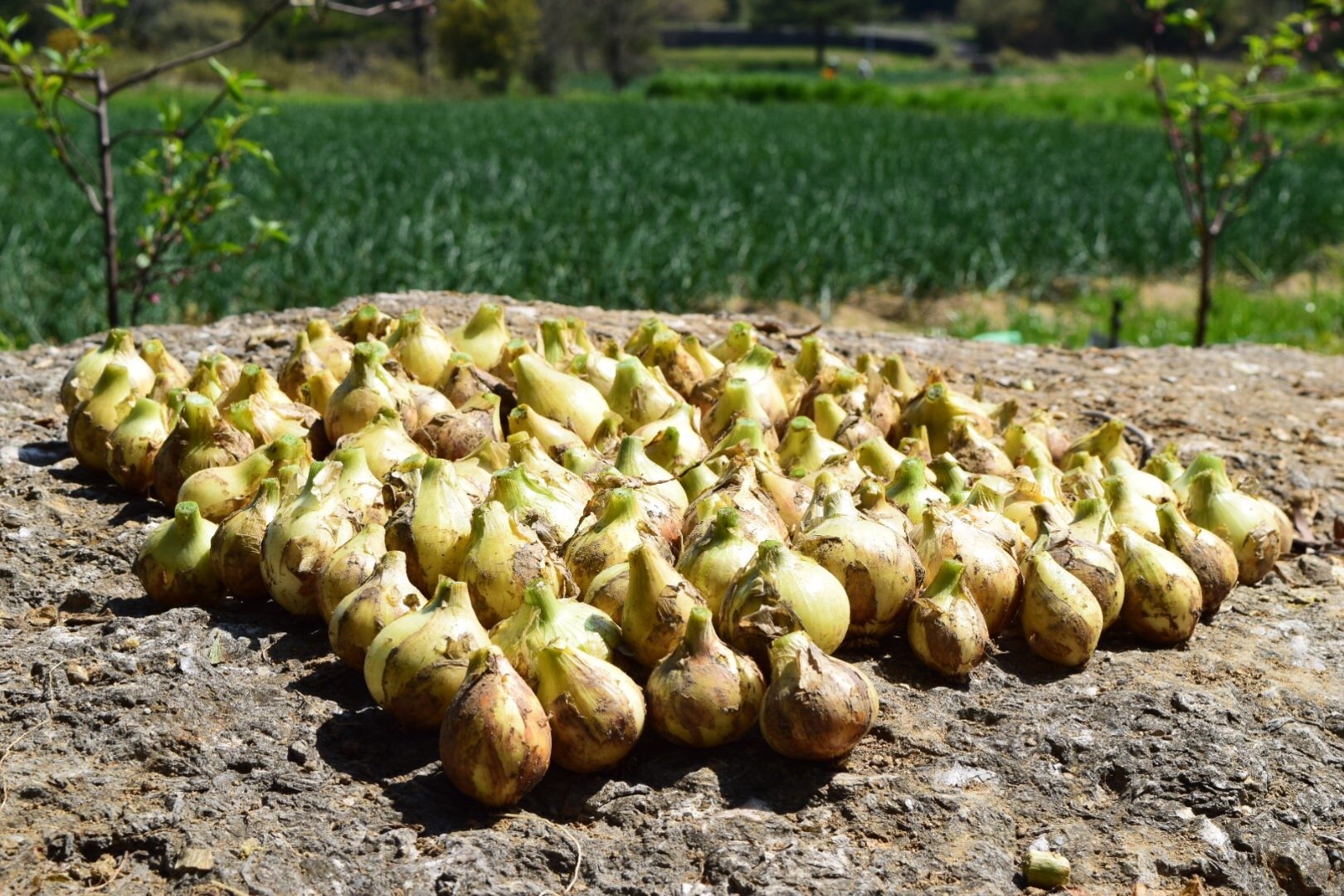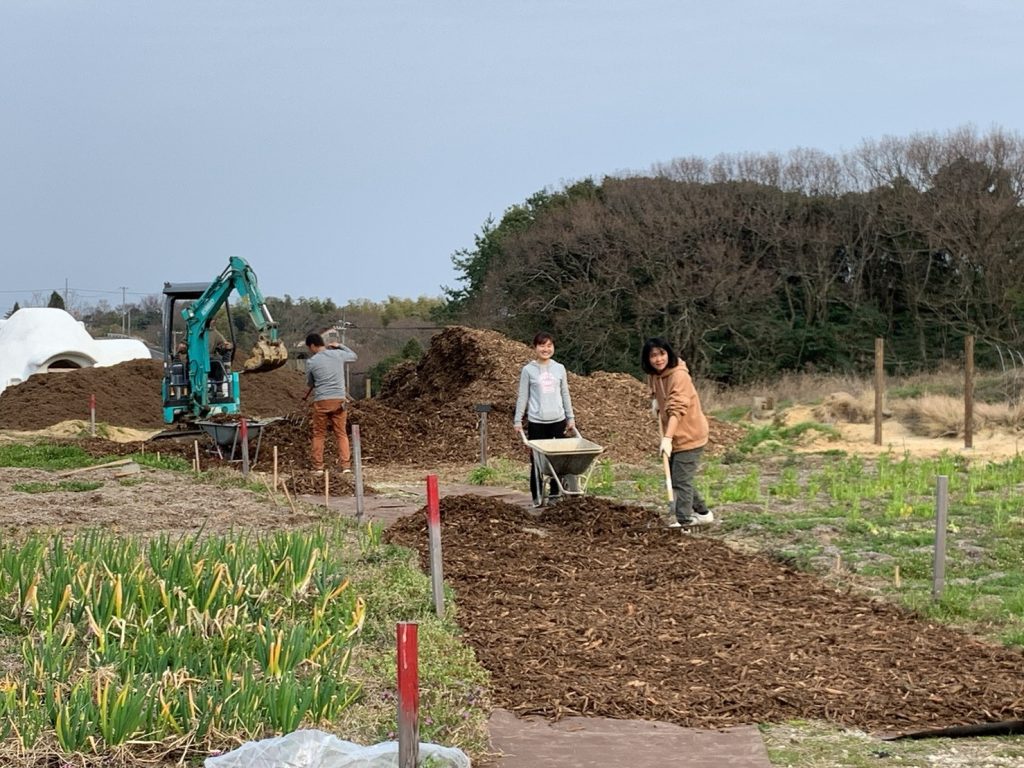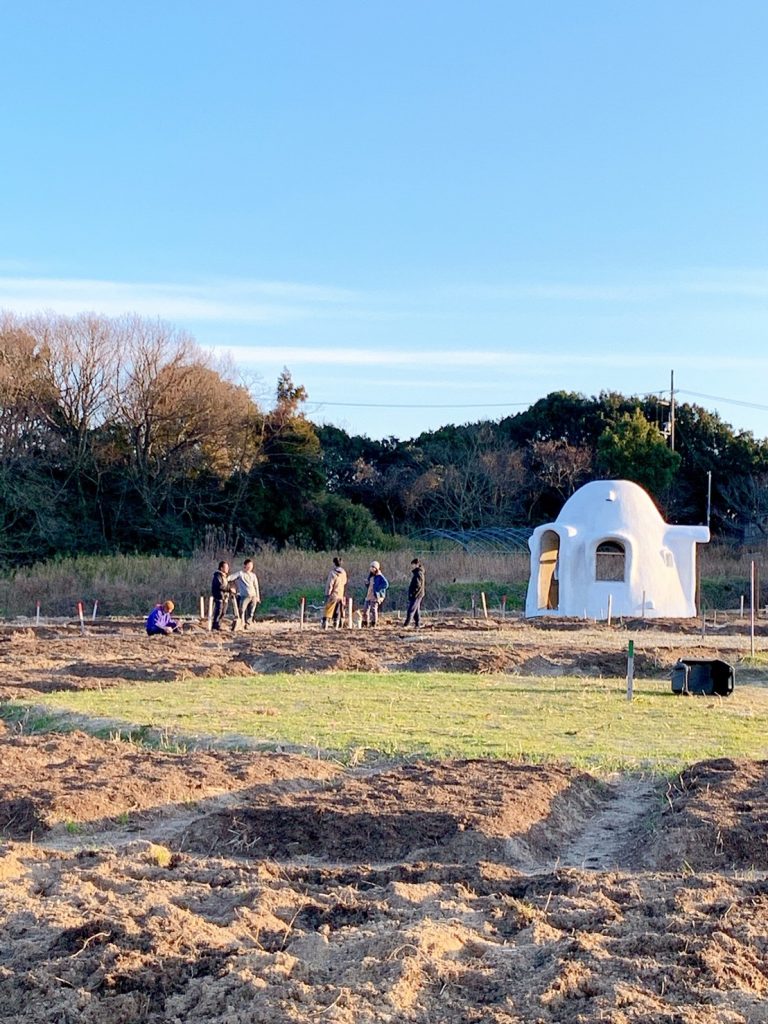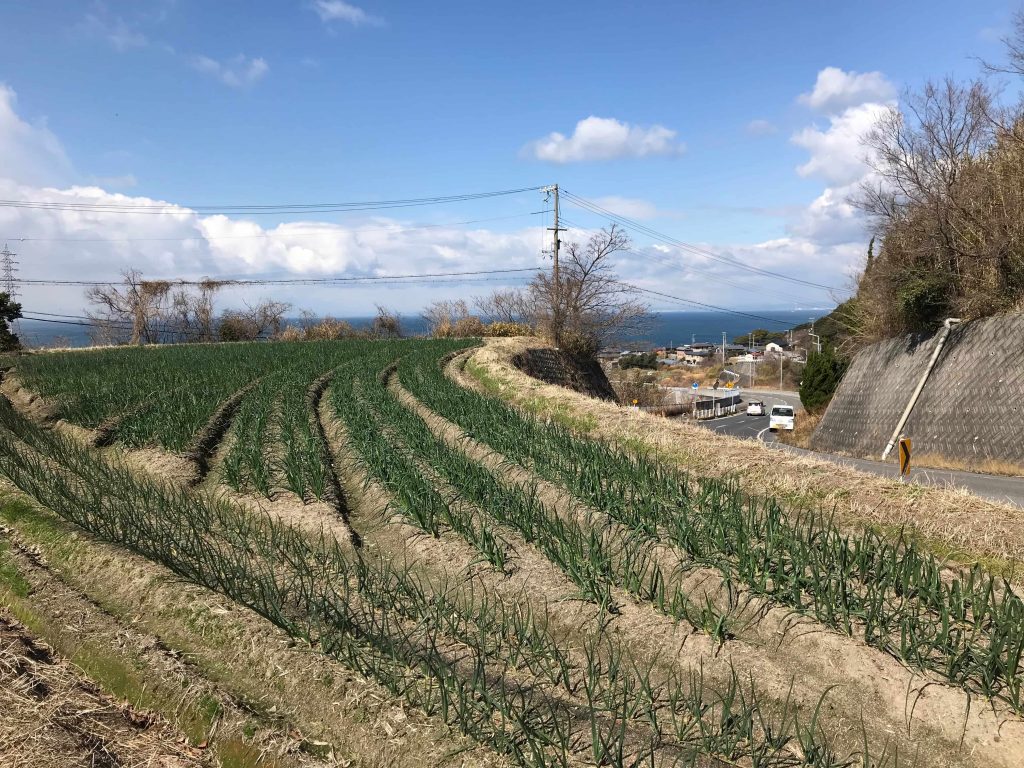
Both younger and older people enjoy work.
People over the age of 65 make up around 30 percent of the entire population of Awaji (28 % in Japan). This number in Awaji Island is the biggest of the 5 independent areas of Hyogo prefecture. Accordingly, aging is one of the most serious issues for Awaji. But it should be noticed in terms of the working environment in Awaji; 551 people between the ages of 65 and 69 work in agriculture (28 percent), and 258 people out of 441 people between the ages of 80 and 84 (58 percent) still work as farmers. 46 percent of people work for the service industry while only 10 percent of the people between ages of 80 and 84 work for the service industry (Awaji city 2017, http://city.awaji.lg.jp/soshiki/kikaku/kokucho27.sangyo.html/). These statistics indicate that more elderly people can work as farmers in Awaji. Having a job is very important to maintain a healthy life. Dr. Yoshiya Hase, a neurologist (Toki City, Gifu prefecture), supports this idea. He says that to avoid dementia it is important to work and stimulate your brain throughout your entire life. He also proposes that the people even under age 75 should not be called elder people. Because the statistics in terms of Japanese health suggests that they are physically healthy and active enough compared to that of 20-30 years ago. Based on these circumstances, Hyogo prefecture has raised a new program for Awaji island as ”a future oriented island” where people can work for their whole lives (http://awaji-kankyoumiraijima.jp/about). Since the Japanese financial situation for pension will be quite tight, it is seriously argued whether or not the retirement age should be postponed. Some people want to work after their retirement time while many might start their second life for their hobbies. However, opportunities to get a new job after retirement are limited. PASONA Group Corporation offers a new program for working after retirement, the Elder-shine program. It provides several chances to work in Awaji for elderly people (http://pasonagroup.co.jp).
For the younger people there are also chances to start agriculture in Awaji. 8 years ago, a group to support agriculture named Nou-entai was founded (http://www.nouentai.co.jp).This group developed abandoned rice fields to vegetable and fruit fields and support skills of agriculture for young challengers by collaboration with the Awaji natives. They also support management of agri-businesses and sell Awaji agri-products like rice and vegetables. After three years studying, 7 people became independent farmers in Awaji Island, and 5 outside of the island. Three people started a businesses related to agriculture.
Some people who used to work in big cities moved to Awaji and started their new lives. A group supporting these new starts in Awaji exists(http://awajigurashi.com). In this community one person has started salt production based on a traditional procedure from salt water from the ocean (http://hamashizuku.com/), and another person has started to produce textiles stained with indigo dye (http://sally-juinichi.com). One person studied agriculture at the School of Agriculture at Kibi International University in Minami Awaji City and got a job at an agri-farm in the island (http://2525farm.com/).In spring of 2020 PASONA Group Corp started a new program named MBA (Middles Be Ambitious, https://www.pasonagroup.co.jp/recruit/mba/) and offered several new jobs in Awaji for people who suffered from the big recession 20 years ago and could not get stable jobs since that time. For the young couples who want to start a new life in Awaji, the educational environment for their children might be a big issue to overcome. For this point, there is no need to worry because there are several high schools and universities in Awaji Island. If you would like to have other educational opportunities, the larger cities of Kobe and Osaka are within a one-hour drive from Awaji.



